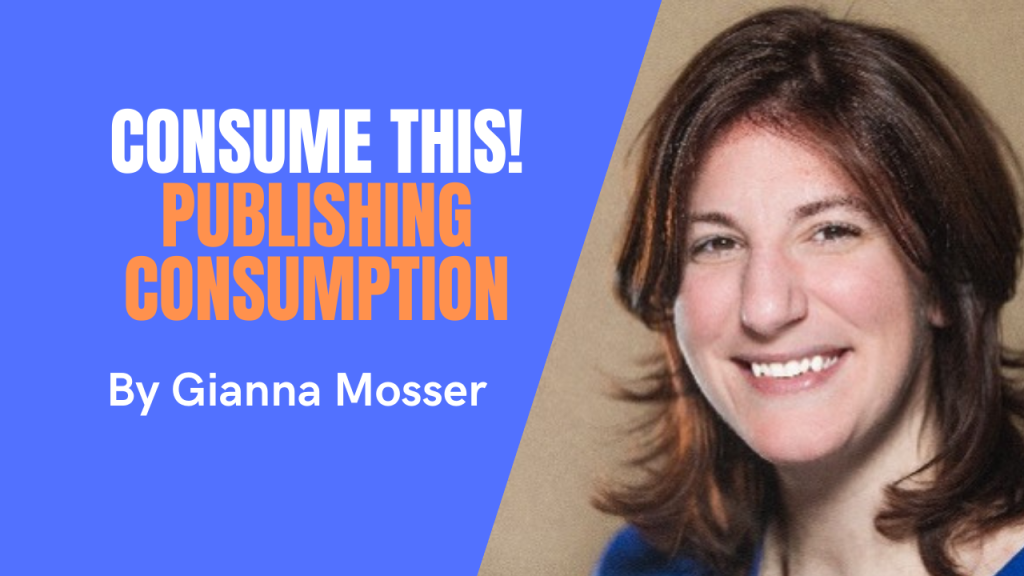In this month’s post, we branch out from research projects to hear some thoughts from the new(ish) director of Vanderbilt University Press, Gianna Mosser, about the press’s interest in, and in expanding, the study of consumers and consumption for its sociology and related lists.
-Michaela DeSoucey (Section Chair)
Consume This! Publishing Consumption
By Gianna Mosser
Since last March, many of us have been living in unprecedented circumstances, where so many facets of our social structures have been significantly shifted. Consumption has been one of the areas of our lives that has become hyper central to our thinking: how do you get what you want and need in a pandemic? When our social interactions are limited to only our most nuclear family units, how have our consumption patterns changed? How are structural inequalities exacerbated in these conditions? As an acquisitions editor in the field of sociology and the new director of Vanderbilt University Press, I have to consider these questions in determining what projects to pursue that will become the books in an uncertain future. And, I am going to venture that this subfield will continue to expand widely as scholars wrestle with these critical aspects of our immediate livelihoods.
In this ConsumeThis! post, I summarize a few recent titles from Vanderbilt University Press that engage and examine consumption in different and important ways. I hope to keep this as an area of expansion and focus for our publishing output within sociology and beyond.
Recent Titles from Vanderbilt UP:
Food and Poverty: Food Insecurity and Food Sovereignty among America’s Poor, edited by Leslie Hossfeld, E. Brooke Kelly, and Julia Waity
Food insecurity rates, which skyrocketed with the Great Recession, have yet to fall to pre-recession levels. Food pantries are stretched thin, and states are imposing new restrictions on programs like SNAP that are preventing people from getting crucial government assistance. At the same time, we see an increase in obesity that results from lack of access to healthy foods. The poor face a daily choice between paying bills and paying for food. Sociologists of consumption will be especially interested in the book’s examination of paradoxes (and possible solutions) surrounding the American food system—e.g., a bountiful food supply vs. widespread food insecurity, obesity vs. hunger, and notions of urban renewal vs. racial inequities. More information about Food and Poverty.
Food, Texts, and Cultures in Latin America and Spain, edited by Rafael Climent-Espino and Ana M. Gómez-Bravo
The fourteen essays in Food, Texts, and Cultures in Latin America and Spain showcase the eye-opening potential of a food lens within colonial studies, ethnic and racial studies, gender and sexuality studies, and studies of power dynamics, nationalisms and nation building, theories of embodiment, and identity. The studies span from the Middle Ages to the twenty-first century, and the contributing scholars occupy diverse fields within Latin American and Hispanic Studies. Section members will be especially interested in the book’s eclectic critical and theoretical approaches toward the ways in which food consumption practices have greatly shaped Latin American and Iberian cultures and texts across centuries. More information about Food, Texts, and Cultures in Latin America and Spain.
Hot, Hot Chicken: A Nashville Story, by Rachel Louise Martin
These days, hot chicken is a “must-try” Southern food. But for almost seventy years, hot chicken was made and sold primarily in Nashville’s Black neighborhoods—and the story of hot chicken says something powerful about race relations in Nashville, especially as the city tries to figure out what it will be in the future. Hot, Hot Chicken recounts the history of Nashville’s Black communities through the story of its hot chicken scene from the Civil War, when Nashville became a segregated city, through the tornado that ripped through Nashville in 2020. Consumption scholars will be drawn to the book’s focus on the ways in which the marketing and consumption of hot chicken have been inextricably tied to race, and how those dimensions have shifted throughout the past and present. More information about Hot, Hot Chicken.
To propose a project to Vanderbilt UP, get in touch via email at gianna.f.mosser@vanderbilt.edu. Submission guidelines can be found at this website.
About the Author:

Gianna Mosser is the Director of Vanderbilt University Press and an active member of the Association of University Presses. She was the previous editor in chief of Northwestern University Press and was journal managing editor for Social Psychology Quarterly.




Leave a comment